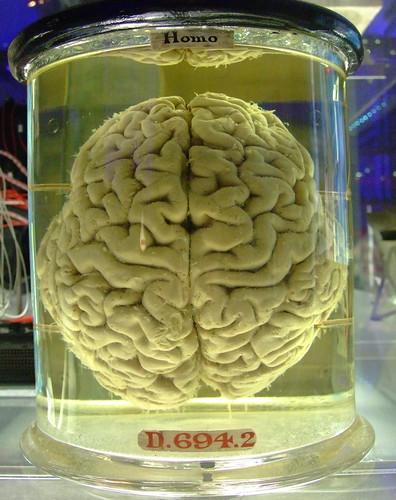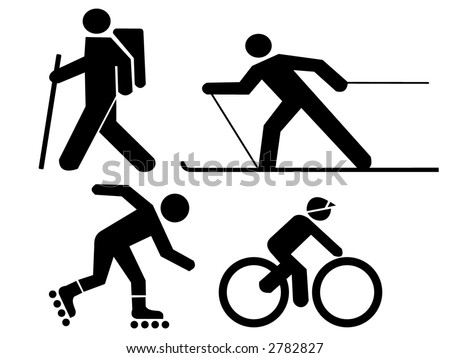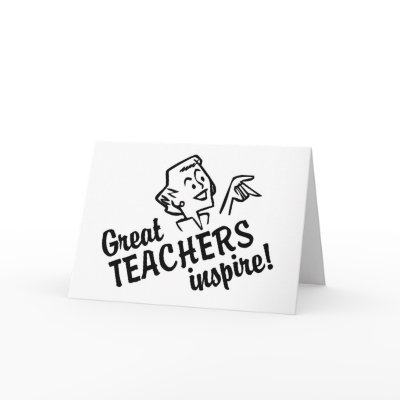A great speaker and a funny one too!
Developmental molecular biologist John Medina admits that we do not know much about how aour brains work. In fact, if we ever figured out exactly how it did this, that would be a major achievement!
In his book, "Brain Rules", he writes about how the brain works and how we can use ours better. He lays out 12 overarching principles or rules, that he believes can be applied to our daily lives to help us to better teach, learn, conduct business and parent. Medina decided to write his book as a way to apply what he says is grounded neuroscience with real-world applications.
Now became one of my favourite book
I had the opportunity to attend a lecture also known as "2011 Asia HRD Congress : Executive Workshop on 12 Brain Rules - The Forgotten Known Secrets to Survive and Thrive by John Medina last May 2011. It was held at the DoubleTree by Hilton, Kuala Lumpur. The workshop aims to give participants an in-depth understanding on how the brain works for impactful learning and development. By exploring and applying this practical approach, hopefully, we can achieve outstanding performance which enables us to survive and thrive in this ever challenging world.
The zombies of PvsZ food for thought!
John Medina, is on the faculty of the University of Washington Medical School's bioengineering department and directs the Brain Center for Applied Learning at Seattle Pacific University.
Interestingly, he quoted, "If you wanted to design a learning environment that was directly opposed to what the brain is good at doing, you'd settle on a traditional American classroom or one of those cubicles people have to work in." Unfortunately, this happens almost everywhere else in the world!
He went on to introduce his rule No.1 which is, "Exercise boosts brain power", and further explains that studies show that our brains still thrive on movement and that exercise boosts concentration and problem-solving. He lamented on lack of physical-education activities at schools, and calls for employers to encourage walking meetings!
Medina himself chugs along on a treadmill while doing computer work. The Harvard Business Review named his concepts for incorporating treadmills into the workplace as one of its "Breakthrough Ideas for 2008."
John Medina also suggested that the paradigm might change if brain scientists started rubbing shoulders more with educators and executives.
In his lecture, he also advices participants that we should respect sleep, during which the brain does valuable processing; recognize the damage done by long-term stress and acknowledge that correctly timed repetition is key to lasting memory.
I am a firm believer in multitasking. However in his lecture, John Medina debunked multitasking and claim it as myth. He further explains that multitasking robs focus, promotes inefficiency and causes mistakes. I was not very happy about this statement as my superbusy job requires me to multitask most of the time or else I am screwed. However, he gave a convincing example, talking on the cellphone while driving has caused tragedies by sapping focus and delaying reaction time.
Rule number 4 is "The brain does not like boring things" where he believes that the brain responds best to moving pictures, humourous and content that touches on emotions. It is interesting to note that that he writes for a layperson's ear even though his rules are based on studies that have been published in peer-reviewed scientific journals. That is what I call an examplary science communicator!
I also admired his energy, enthusiasm while he excitedly shared the wonders of the brain. He believes the brain pays sharp attention for only about 10 minutes at a time unless it is engaged on an emotional level. So after nine minutes of lecturing, he will introduce something, often a story that jolts listeners. It is his way to reboot attention spans and inject meaning before details.
I particularly like his take on teachers who inspire their students. He mentioned, "Students don't recall a teacher for being so organized. They remember the inspiring teachers. When you get that relational connection with a student, curiosity runs its natural course."
THE 12 BRAIN RULES
Rule #1 : Exercise boosts brain power (EXERCISE)
Our brains thrive on movement and exercise boosts concentration and problem-solving.
Rule #2 : The human brain evolved, too (SURVIVAL)
Our ability to solve problems, learn from mistakes and create alliances has been the key to our survival and how we took over the world.
Rule #3 : Every brain is wired differently (WIRING)
What you do and what happens to you actually rewires it. No two people's brains store the same information in the same way in the same place. We actually have a great number of ways of being intelligent, many of which are not assessed in IQ tests.
Rule #4 : We don't pay attention to boring things (ATTENTION)
The brain responds best to moving pictures, humourous and content that touches on emotions.
Rule #5 : Repeat to remember (SHORT-TERM MEMORY)
You can improve your chances of remembering something if you reproduce the environment in which you first put it into your brain.
Rule #6 : Remember to repeat (LONG-TERM MEMORY)
Correctly timed repetition is key to lasting memory. Students should repeat and review what they learned 90 minutes to two hours later, and during school, not just at home.
Rule #7 : Sleep well, think well (SLEEP)
We should respect sleep, during which the brain does valuable processing. Taking a nap midafternoon can help make you more productive. One NASA study found pilots improved performance by a third after a nap of about 20 minutes.
Rule #8 : Stressed brain don't learn the same way (STRESS)
The brain is designed to combat short bouts of stress for an example, getting chased by a sabertooth tiger and not long-term stress that comes from an unreasonable boss or a chaotic home life.
Rule #9 : Stimulate more of the senses (SENSORY INTEGRATION)
Our senses evolved to work together. For an example, vision influences hearing and this means that we learn best if we stimulate several senses at once.
Rule #10 : Vision trumps all other senses (VISION)
Vision is our most dominant sense, taking up half of our brain resources. Consequently, we learn and remember best through written or spoken words.
Rule #11 : Male and female brains are different (GENDER)
Men's and women's brains are different structurally and biochemically. They also respond differently to acute stress. Women remember emotional details while men get the gist.
Rule #12 : We are powerful and natural explorers (EXPLORATION)
Babies learn through hands-on as they explore, theorize, test and conclude. Some parts of adult brains are just as malleable as the infants', so we can continue to create neurons and learn new things.
Note :
I will attempt to simplify my lecture notes one rule at a time with hope that you will also gain something useful for your life, work and family. For teachers, especially, I would like to attempt to give some practical ideas to be implemented in classrooms to enrich teaching and learning. Hopefully we will have an enriching 2012 and years ahead, so stay tuned!


















Azhar, great sharing, keep up your good work.
ReplyDeleteI've watch his video, too. Very funny and informative.